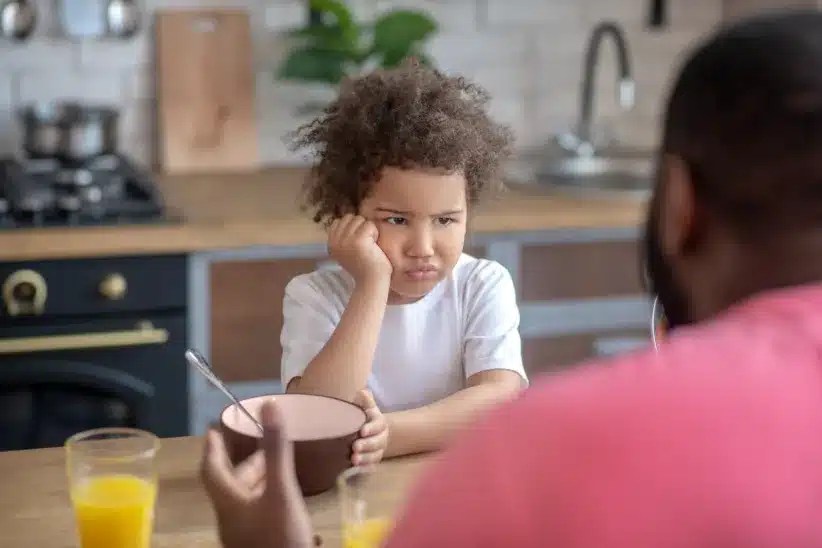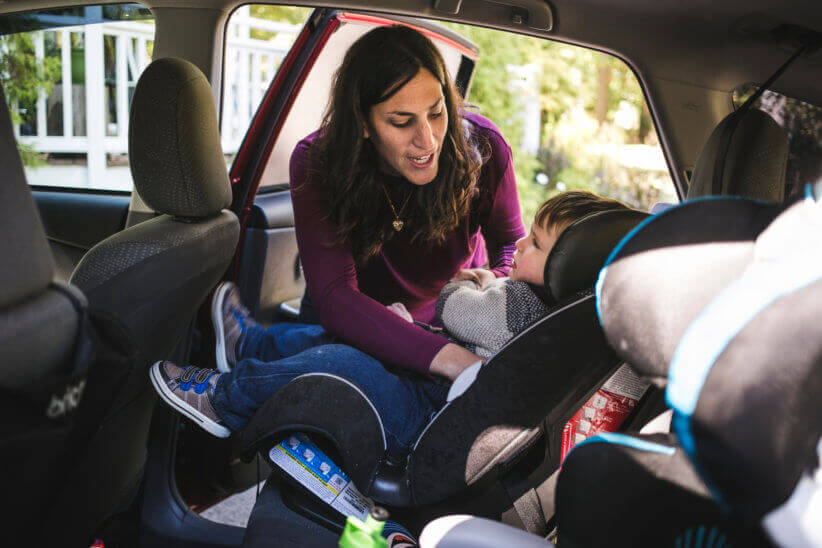Are you a fledgling parent who’s interested to learn about sleep training? You’re in luck! All you need to do is recite a short speech. It goes like this:
“Fun’s over kid! Now you go in your crib — you go in your crib and you cry. Blankets? Pillows? Yeah, that’s not gonna happen. And I’ll take that little dolly back now, thank you. Here, you can have a stiff plastic mattress. By the way, in two minutes I’m going to the other room to watch TV with the volume turned way up so I can’t hear you crying. It’s hard, babycakes, but you might as well learn now: the world is a cold and unforgiving place. Goodnight!”
That should do it.
Do you find sleep training to be a daunting prospect? The favored method du jour — letting the baby cry herself to sleep in a crib free from any comforts (a.k.a. suffocation hazards) — feels, well, heartless, doesn’t it? Fortunately, you don’t have to abide by a one-size-fits-all method. Breaking the process down and considering your own needs can result in an experience that helps you to better understand your baby and your role as a parent as well. (Does that sound better?)
First, keep in mind is that even with no training, direction, or advanced degrees, your baby will sleep. Hard to believe, but it’s true. That said, how do you know how to proceed?
When our baby was about 6 months old, our pediatrician recommended that my wife and I go ahead with the “cry it out” method of sleep training. A more gradual approach is fine too, she told us, but that’s more for the benefit of the parents than the baby. This left me thinking: parenting is hard enough already — is there something wrong with factoring in your own sanity?
Your first year as a parent is all about trying to stop the nerve-wrenching screams of your infant. It’s a funny thing that during this time, everyone you know gives advice about sleep training, saying, “It’s okay to let the baby cry. It doesn’t do any harm.” I guess that’s true, unless your definition of “harm” includes me tearing my own ears off.
Here’s what worked for me. Instead of adhering to the Ministry of Parenting guidelines on sleep training — which dictate that you either remain in the room only for short, predetermined intervals, or leave the baby alone altogether — I decided to play it by ear. My only goal at first was to get her used to falling asleep in the crib instead of on my lap. I didn’t feel any need to insist that she simultaneously deal with the shock of being left all alone. I waited until she was clearly tired, and I put her in the crib. She cried, reached for me and tried to stand up, but I didn’t give in. I did, however, help her to turn over to a more comfortable position, and I kept a hand on her back, much like when she’s falling asleep on my shoulder. The crying eventually subsided to a whimper, and she drifted off to sleep. Elapsed time: 10 minutes!
That was only one part of the overall process, but it was a good start. She was learning the basic concept, and I walked away satisfied rather than stressed out.
Here’s why that approach makes sense to me. There will be many, many times when you’ll have to deny your baby something she wants: “You’re crying because I took away the steak knife you stole off the table? Too bad, you can’t have it. But you’re reeeeeally upset about it? Uhhh, sorry, still no.”
On the other hand, there really aren’t any times when you’ll need to abandon your baby. I think that’s why a lot of parents either give up on, or don’t even attempt the usual method of sleep training — it doesn’t feel right, and they simply can’t relate to it. I’m not saying it doesn’t work, or that it will have detrimental effects on your baby, but it seems a bit clinical, even opportunistic: if you willingly put your 7-year-old child through an ordeal so horrifying as to make her scream and cry her eyes out for 45 minutes straight, she’ll likely spend her adult life in therapy. Your 7-month-old, however, isn’t going to remember that kind of trauma, so go right ahead!
I’m not trying to dissuade anyone from following professional advice. The standard method works fine for many people. I’m concerned with those parents who, when faced with sleep training as an all-or-nothing proposition, risk falling on the “nothing” side of the equation. Sleep training can make you feel like a bad parent, or it can help you learn how to be a better one. It’s important to know what you’re supposed to do, but it’s equally important to assess your own situation and recognize when it’s okay to break the rules. Theory and discipline are useful tools, but so are compassion and common sense.
After going through my modified routine with the baby a few times, something interesting began to happen. Sometimes after drinking a bottle at night she would lift her head off of my shoulder and squirm her way next to me on the couch. She would whimper, flail around, and finally settle into a satisfactory position and fall asleep — all of the things that babies are purported to do when left to cry themselves to sleep in the crib. I’d like to take credit for “training” her, but I’m starting to think she already knows what she’s doing.
Tim Perrins is a part-time stay-at-home dad who lives with his wife and their occasionally tired baby in Park Slope, Brooklyn. More of his thoughts about babies and other things that confuse him can be found at www.RevoltOfTheImbeciles.blogspot.com.





















